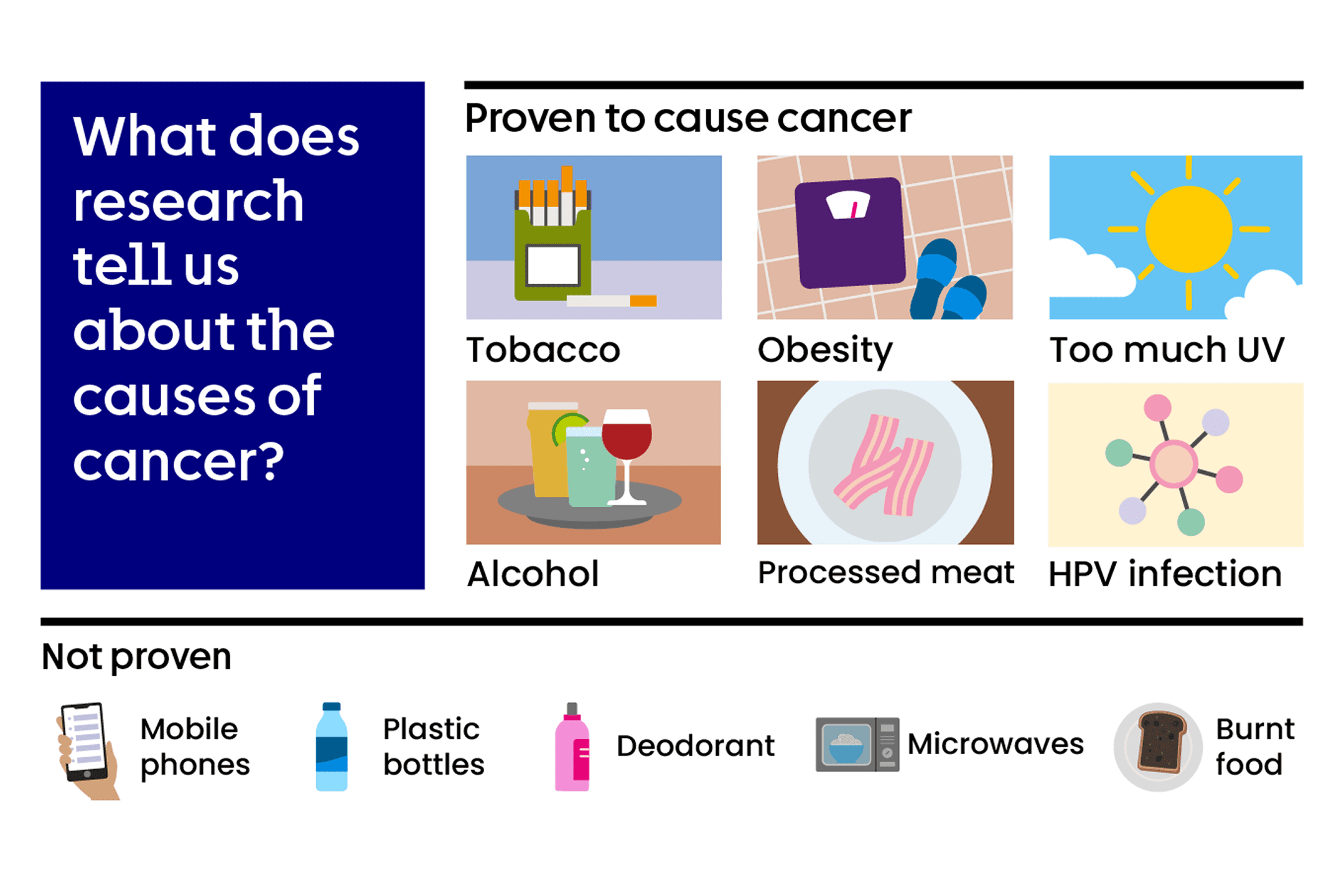Causes of cancer
Stories about possible cancer causes make for hot topics in the news and on social media. But some things you hear, read or see are not supported by good evidence.
Misinformation can cause unnecessary worry and distract from the facts of what affects our risk of cancer.

Decades of research has shown that tobacco is the biggest cause of cancer in the world. Other proven causes of cancer include overweight and obesity, ultraviolet radiation (UV), alcohol, processed meat and infection with human papillomavirus (HPV).
Some claims about cancer risk are not supported by good evidence. But it's proven that not smoking, keeping a healthy weight, staying safe in the sun, cutting down on alcohol and eating a healthy, balanced diet lower the risk of cancer.
Find out more about the proven causes of cancer and healthy changes you can make to lower your risk
Our team of experts regularly review the research on the causes of cancer. This ensures we provide information which is evidence-based, accurate and up to date. We are formally recognised as trusted creator of health information.
Find out how we evaluate research on the causes of cancer
Eating acrylamide in burnt toast and other burnt starchy foods is unlikely to increase the risk of cancer.
Eating food and drink with artificial sweeteners in is unlikely to cause cancer.
Milk and other dairy products can reduce the risk of bowel cancer. There is no strong evidence that dairy increases the risk of cancer.
Eating genetically modified (GM) foods doesn’t cause cancer.
Get the facts on so-called 'superfoods' and other food myths.
Radiation from mobile phones, networks and Wi-Fi is too weak to be able to cause cancer by damaging DNA.
Using cosmetics is unlikely to increase the risk of cancer.
Using plastic bottles and containers doesn't cause cancer.
There is no strong evidence that being exposed to pesticides at low levels causes cancer.
Stress doesn’t directly cause cancer. But stressful times can make it harder to keep up healthy habits.
Physical trauma, injury or a blow to the breast does not cause cancer.
Some medical scans like x-rays and CT scans use small amounts of ionising radiation. Cosmic radiation from flying is unlikely to increase the risk of cancer.
It can be hard to tell fact from fiction when it comes to information about our health. We've put together a guide to help you spot misinformation when reading headlines about cancer.
Make sure you get your information on cancer from a trusted source.
Questions about cancer? Call freephone 0808 800 40 40 from 9 to 5 - Monday to Friday. Alternatively, you can email us.